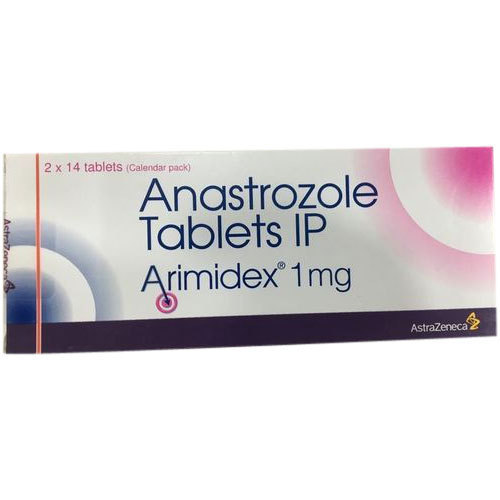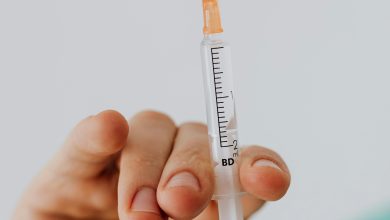How To Deal With Side Effects Of Anastrozole (Arimidex)

Side effects are one of the major things a patient looks out for in a medication. The National Cancer Institute (NCI) defines an adverse effect as “an unexpected medical problem that happens during treatment with a drug or other therapy.” Unwanted effects can result from a physician’s advice and from medications or treatments, including complementary and alternative therapies. They can lead to complications.
Every one of us is unique. However, certain individual factors make some of us more likely to develop side effects than others. The most significant of these factors is age. Older adults typically take more medicines and studies have shown they are twice as likely to go to ED because of an adverse drug event and seven times more likely to be hospitalized. They are more likely to be on medicines with a narrow margin between being effective or toxic.
Many Patients are frightened by potential side effects. They may have also experienced previous side effects with the same or similar medicine. Additionally, patients report not taking their medication because they may have witnessed side effects experienced by a friend or family member who was taking the same or similar medication. Seeing those side effects experienced by someone else may have led them to believe the medication caused those problems.

What is Anastrozole?
Anastrozole, sold under the brand name Arimidex among others, is a medication used with other treatments, such as surgery or radiation, to treat early breast cancer in women who have experienced menopause (change of life; end of monthly menstrual periods). This medication is also used in women, who have experienced menopause, as the first treatment for breast cancer that has spread within the breast or to other areas of the body. This medication is also used to treat breast cancer in women whose breast cancer has worsened after taking tamoxifen (Nolvadex).
Anastrozole is considered a hormone therapy rather than a traditional chemotherapy medication. Chemotherapy is used to target and kill cancer cells.
How does anastrozole work?
Your blood carries estrogen to cells and tissues throughout your body. Estrogen plays a vital role in sexual development and reproductive health. But estrogen is also a carcinogen, which means it has the potential to cause cancer. In estrogen-dependent cancer, estrogen fuels cancer’s growth. Anastrozole belongs to a class of medications called nonsteroidal aromatase inhibitors, it works by lowering the amount of estrogen the body makes. This can slow or stop the growth of many types of breast cancer cells that need estrogen to grow.
How should anastrozole be used?
Anastrozole comes as a tablet to take by mouth. It is usually taken once a day with or without food. Take anastrozole at around the same time every day. Follow the directions on your prescription label carefully, and ask your doctor or pharmacist to explain any part you do not understand. The typical dose is 1 mg by mouth daily. Take anastrozole exactly as directed. Do not take more or less of it or take it more often than prescribed by your doctor.
You may need to take anastrozole for several years or longer. Continue to take anastrozole even if you feel well. Do not stop taking anastrozole without talking to your doctor. Ask your pharmacist or doctor for a copy of the manufacturer’s information for the patient.
How to deal with side effects of anastrozole
Anastrozole may cause side effects. How often and how severe the side effects are can vary from person to person. They also depend on what other treatment you are having. For example, your side effects could be worse if you are also having other drugs or radiotherapy.
Here are some common side effects of anastrozole and how to deal with them:
- Headaches: Tell your doctor or nurse if you keep getting headaches. They can give you painkillers to help. Most times, simple pain killers such as paracetamol and anti-inflammatory painkillers, such as ibuprofen can help.
- Hot flushes: Anastrozole can cause mild to severe hot flushes. Flushes and sweats can be difficult to control and anastrozole can make them worse. Acupuncture has been tested in trials for hot flushes. Some studies seem to show that particular types of acupuncture may help. Homeopathic treatment has been used in a couple of trials for hot flushes and they suggested that it may be helpful but we need more research to be sure. Talk to your doctor if your hot flushes are hard to cope with. They might be able to prescribe you some medicines.
- Loss of appetite and feeling sick: Changes to your appetite can be distressing to you and your family and friends. Eating is a social and enjoyable activity, and you or they might feel upset if you don’t feel like taking part. Eating several small meals and snacks throughout the day can be easier to manage. If you are worried about losing weight, ask your doctor for high-calorie drinks that you can sip between treatments. The following tips can be helpful to help improve how you feel: acupuncture or acupressure, distraction, for example, playing video games or listening to music, or muscle relaxation training.
- Skin rash: Skin problems associated with anastrozole include a skin rash, dry skin, and itching. There are things you can do to help your skin while having treatment with anastrozole. Tell your doctor if you have any rashes or itching. Water containing chlorine can make rashes worse, so don’t go swimming if you have a rash. If your skin gets dry or itchy, smoothing in unperfumed moisturizing cream may help. Also, check with your doctor whether you need to do anything to protect your skin.
- Painful or stiff joints: Joint pain, achiness, and stiffness are common side effects of aromatase inhibitors, such as anastrozole. On average, joint pain seems to begin about 6 weeks after starting an aromatase inhibitor. And it may improve after the first year of taking the drug. Various studies have shown that these joint-related side effects can often be eased with gentle physical exercise, such as walking. Speak to your doctor or nurse about what painkillers you can take to help with this.
- Tiredness and weakness (fatigue): Many people with cancer don’t tell their doctor or nurse about their tiredness. Sometimes people think they just need to get on with it. Despite it being hard sometimes to treat the actual cause of your tiredness, it is still important to tell your doctor or specialist nurse about it. They can try things to help you. Various things can help you to reduce tiredness and cope with it, for example, exercise. Some research has shown that taking gentle exercise can give you more energy. It is important to balance exercise with resting.
- Loss of bone strength: One major side effect of Anastrozole is reduced bone mineral density (weakened bones). Estrogen helps to keep your bones strong. But anastrozole lowers your estrogen levels. This means the drug can weaken your bones and increase your risk of osteoporosis (thin, weak bones) or bone fractures. Avoid taking any bone-strengthening supplements without first discussing them with your doctor or nurse. Anastrozole can interact with vitamins, or herbs you may be taking.
- Diarrhea: Diarrhoea usually means having more than 3 unformed poos (stools, bowel movements) in 24 hours. It is a common side effect of some cancer drugs. With some drugs, it can be severe and affect your quality of life. And you might need hospital treatment. Eat less fiber (avoid raw fruits, fruit juice, cereals, and vegetables). Drink plenty of liquid to replace the fluid lost from diarrhea. Read Foods To Avoid When Taking Anastrozole (Arimidex)
- Vaginal dryness or bleeding: Anastrozole-induced bleeding might start in the first few weeks of treatment. Avoid using strong or perfumed soaps or lotions near the vagina. Using lubricants and vaginal moisturizers that provide short-term moisture. Let your team know if this continues for longer.
- Hair thinning: Anastrozole may cause hair thinning because of its estrogen-lowering effects; however, it is unlikely to cause complete hair loss. Hair thinning usually improves after the first year of taking anastrozole; although some women may experience thinning for the total duration of treatment. Use gentle hair products such as baby shampoos. Don’t use perms or hair colors on thinning hair – colors may not take well and perms can damage the hair. Avoid using hairdryers, curling tongs, hair straighteners, and curlers on thinning hair, and pat your hair dry after washing. If your scalp flakes or itches, this means it is dry – use oil or moisturizer, not dandruff shampoo. Protect your scalp by covering your head from the sun.
When to contact your team
Your doctor, nurse, or pharmacist will go through the possible side effects. They will monitor you closely during treatment and check how you are at your appointments. Contact your advice line as soon as possible if:
• you have severe side effects
• your side effects aren’t getting any better
• your side effects are getting worse
We haven’t listed all the side effects here. Remember it is very unlikely that you will have all of these side effects, but you might have some of them at the same time. Learning how to cope with the common side effects of anastrozole can enhance adherence and improve recovery time. Early treatment can also help manage side effects better.





